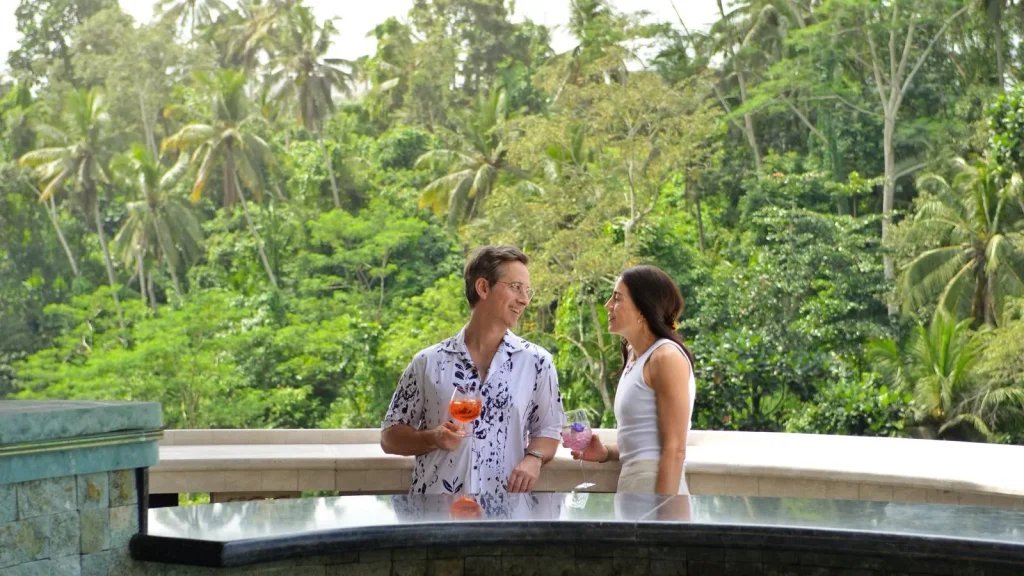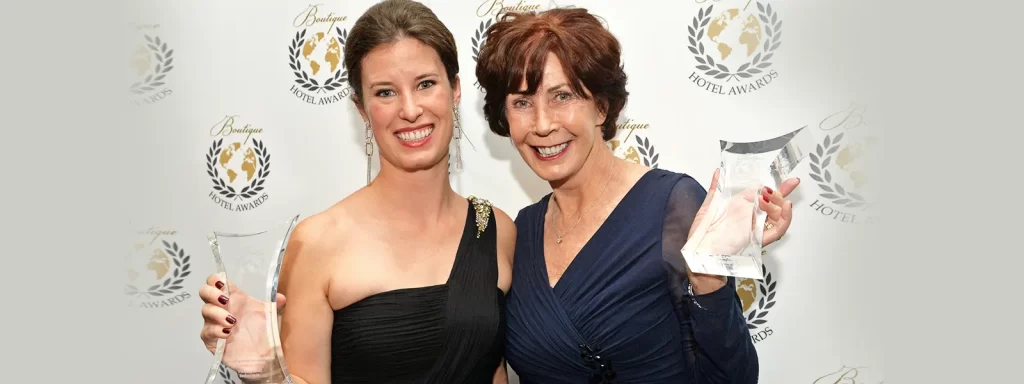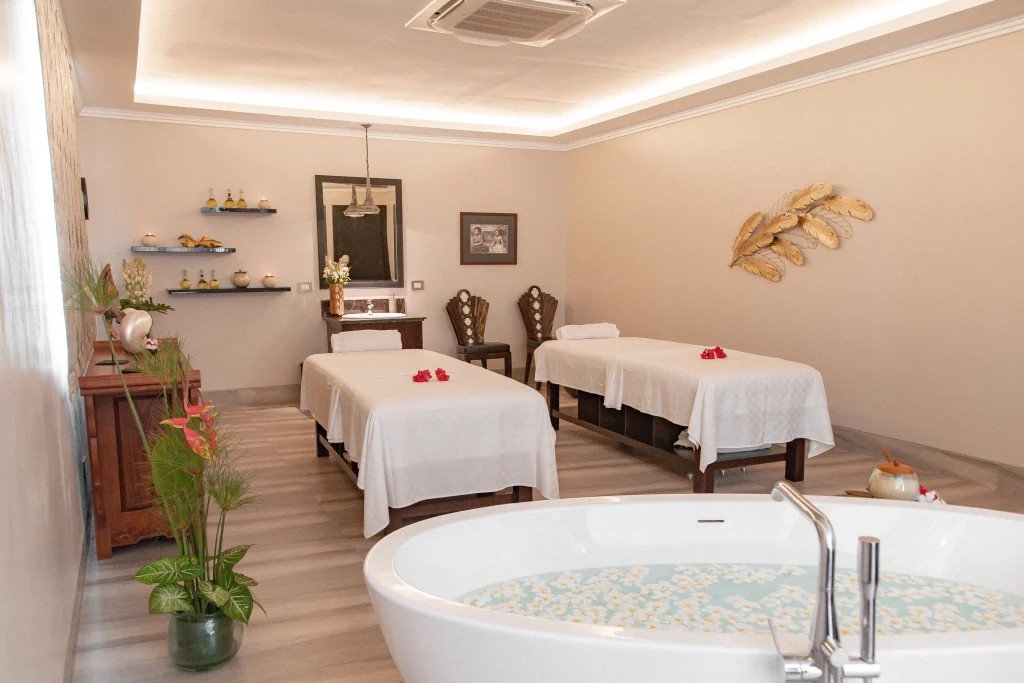Intimate stays, authentic ownership and local hospitality: Meet the mother-daughter team behind Viceroy Bali’s global domination
In Bali, where massive resort chains once dominated the conversation about global excellence, a 40-villa property run by a family has quietly ascended to claim the title of Best Luxury Honeymoon Resort.
This is not just another story about Bali’s tourism boom but rather a masterclass in how intimate scale and authentic ownership can triumph over corporate hospitality giants.
Margaret Bainbridge and her daughter, Amanda’s Viceroy Bali has achieved something remarkable: consistent global recognition that defies conventional wisdom about what makes a resort successful.

When Condé Nast Traveler readers voted it the world’s number one resort in 2018, choosing from 429,000 entries, they were not just selecting a property, but they were endorsing a philosophy that prioritises depth over breadth, authenticity over automation.
The power of intimate scale
The numbers tell a compelling story about the economics of exclusivity. While typical Ubud luxury resorts operate 80-150 keys, Viceroy Bali deliberately maintains just 40 villas.
This constraint, which might seem counterintuitive to profit maximisation, actually creates a competitive moat that larger properties cannot replicate. With over 200 team members serving 40 villas, led by General Manager Patrick Farrell, the property achieves a staff-to-guest ratio of 3.75:1. This is nearly double the industry average.
This staffing philosophy reflects a broader trend reshaping luxury hospitality worldwide. Post-pandemic travellers increasingly value personalised service over standardised experiences. They want to be recognised by name, not by room number.
Viceroy Bali’s approach, employing predominantly local Balinese staff, many from surrounding villages who have worked there since opening, creates institutional memory that chain properties struggle to match.
The property’s recent accolades underscore the effectiveness of this strategy. The 2025 Global Recognition Award for Best Luxury Honeymoon Resort represents another validation from industry peers and discerning travellers who could choose anywhere in the world.

Redefining luxury infrastructure
What sets Viceroy Bali apart extends beyond service philosophy to infrastructure decisions that reflect a deep understanding of modern luxury travel. The property’s on-site helipad, which is non-existent among Ubud resorts, addresses a critical pain point for time-sensitive VIPs.
Twelve minutes from Denpasar Airport by helicopter versus hours by road represents more than convenience; it’s a strategic advantage that attracts guests who measure time in opportunity costs.
Every villa features a heated private infinity pool, creating 40 individual sanctuaries rather than shared spaces. This all-villa concept, combined with views of Mount Agung and surrounding rice terraces, delivers the privacy that ultra-high-net-worth travellers increasingly demand.
The property’s position on the ridge provides 180-degree vistas from all public areas and villas, a geographical advantage that cannot be replicated by competitors.
The culinary program anchors the property’s positioning as a destination rather than merely an accommodation. Apéritif Restaurant’s seven-course degustation menu and 180-label wine cellar earned recognition as Indonesia’s Best Restaurant in 2020 from the World Culinary Awards.
This distinction matters because it attracts epicurean travellers who plan trips around dining experiences, creating a revenue stream that extends beyond room rates.
The property’s holistic wellness offerings through Akoya Spa, featuring valley-view couples’ suites, tap into the $639 billion global wellness tourism market. These aren’t add-on services. They’re integral to the property’s value proposition for guests seeking transformative experiences rather than simple relaxation.

Sustainability initiatives, including a 20% resource reduction target by 2026 and a partnership with Plastic Exchange, address growing environmental consciousness among luxury travellers. The on-site greenhouse and Balinese workshops provide authentic cultural experiences that mass-market resorts cannot authentically replicate.
The implications extend beyond one property’s success. Viceroy Bali’s achievements suggest that the future of luxury hospitality may belong to operators who understand that true luxury lies not in scale but in scarcity, not in standardisation but in personalisation.
The property’s consistent global recognition, from Global Recognition Awards 2025 Best Luxury Resort for Honeymooners to Condé Nast’s readers’ choice, validates a business model that prioritises guest experience over operational efficiency.
This success story arrives at a crucial moment for the hospitality industry. Chain hotels face increasing commoditization as booking platforms reduce differentiation to price comparisons. Independent properties like Viceroy Bali demonstrate that authentic experiences command premium pricing and generate loyalty that transcends transactional relationships.
The broader question becomes whether this model can scale, not in terms of room count, but in terms of replication. Can other family-owned properties learn from Viceroy Bali’s playbook? The answer may determine whether the future of luxury hospitality belongs to corporate giants or to passionate individuals who understand that true hospitality remains fundamentally human.
Perhaps the most profound lesson from Viceroy Bali’s ascent is that global domination doesn’t require global scale. Sometimes the most powerful strategy is to do fewer things exceptionally well rather than many things adequately.
The mother-daughter team behind this success has proven that intimate properties can achieve worldwide recognition by staying true to their authentic vision, which is a reminder that in our increasingly connected world, the most valuable commodity may be genuine human connection.
Learn more at viceroybali.com







